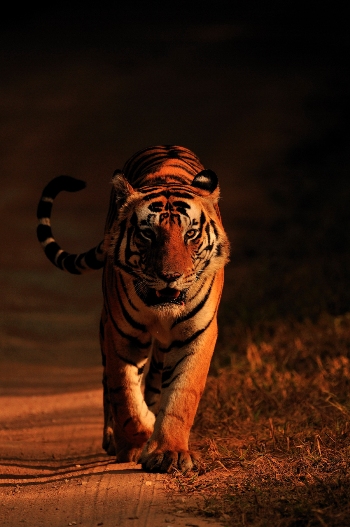
Though as many as 32 tigers have reportedly died in the Corbett National Park because of various reasons, including poaching, but there number have gone up by at least 20, taking the latest count to 170.
In the latest count of the felines conducted by the Indian Wildlife Institute here at the behest of the National Tiger Conservation Authority (NCTA), by the camera trapping method, which is said to be far more reliable than by the pug mark method, the count of the tigers has been put at 170, up 20 from the 150 in 2010.
However, scientists of the Institute claim that the number of the felines could be near the 300 mark as some animals are not captured in the camera traps and may be left out in the count.
They add that even if they were excluded, there are reasons to be happy as the number of animals has definitely gone up, which is a positive sign.
But as a word of caution the wildlife wardens say that Corbett National Park has the maximum density of tigers among all the 41 tiger reserves in the country.
It is doubtful, whether the Corbett park will be in a position to sustain a greater density of tigers, as being territorial animals, the big cat needs a particular amount of area to move around in, so the numbers may not go up in the future, they contend.
Stressing that this was all the reason for ensuring that the encroachments on the corridors are removed and the felines can spill over to forests adjoining the Corbett National Park.
Scientists say that if the buffer zones and corridors are cleared of the encroachments, the area can support a substantial increase in the number of tigers.
Because of the large number of herbivores that are present in the Corbett National Park and other forests in the region, they can sustain an increased carnivore population and as such the state and central governments should pool in their efforts to get rid of the encroachments for an increase in the number of tigers in Uttarakhand.
A journalist with over 40 years of experience, Jagdish Bhatt was Editor, Hill Post (Uttarakhand).
Jagdish had worked with India’s leading English dailies, which include Times of India, Indian Express, Pioneer and several other reputed publications. A highly acclaimed journalist, he was a recipient of many awards
Jagdish Bhatt, aged 72, breathed his last on 28th August 2021 at his Dehradun residence.


